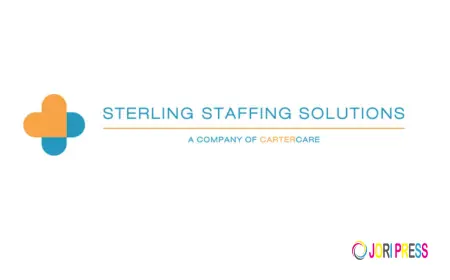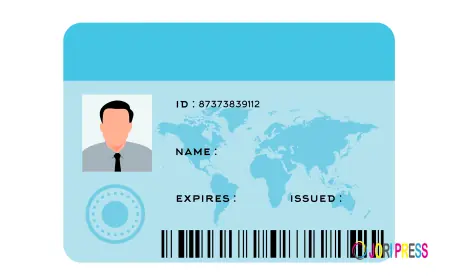Can Talking to a Therapist Online Really Help Me Feel Better?

There are days when it feels like everything is just too much. Work, family, health, news, even simple tasks—everything piles up. And while many people might not think their struggles are “serious enough” to talk to someone, feeling stuck, overwhelmed, or numb isn't something you should ignore. So what do you do when going to a therapist’s office feels like a bigger step than you’re ready for? That’s where online therapy steps in.
The idea of sitting in your own space, maybe on your couch, and being able to speak freely without the hassle of travel or sitting in a waiting room? It’s not only possible, it’s becoming a trusted way for people to find peace, clarity, and real support. With more people now choosing online mental health support, it’s worth asking: does it actually work? Can a video chat with a professional help ease anxiety, manage emotions, or offer relief?
For many, it has. And not just temporarily. Long-term support through online sessions has helped people cope with grief, trauma, burnout, and chronic stress. And it’s not about offering quick fixes. It’s about connection, comfort, and creating space to heal. Services like Idaho virtual mental health NP are making it easier for people to start that process without pressure.
So let’s look at how and why this kind of help works—and what to expect if you try it.
Online Therapy Isn’t a New Trend—It’s a Real Tool
Some assume that therapy has to happen face-to-face to be effective. But studies say otherwise. According to research published in *Psychological Services*, online therapy can be just as effective as in-person care, especially for anxiety and depression.
That’s because what matters most in therapy isn’t the room you sit in—it’s the connection you have with the therapist. It’s how safe and supported you feel. And for many, being at home actually helps open up faster. There’s less pressure, fewer distractions, and a sense of control. You decide where you sit, what you wear, how you speak.
You Can Get Real Support Without Leaving Home
Online therapy isn’t watered-down care. In fact, many licensed professionals have been trained specifically for telehealth sessions. They use secure platforms, follow privacy laws, and bring the same level of skill and attention as they would in a clinic.
What makes the difference is how flexible the approach is. Video sessions, phone calls, secure messaging, even guided mental health exercises can be part of your care. That means if you're someone who finds it hard to speak openly right away, you have options.
It Helps You Speak More Freely
There’s something about being in your own home, wearing your own clothes, maybe even sipping tea during a session, that makes it easier to open up. You’re not sitting across from someone under bright lights in a formal office. That can be intimidating. With online therapy, you get to choose your space. And that comfort can lead to more honest conversations. You might find you’re saying things you’ve never said out loud before. That’s a powerful step toward healing.
It also helps people who might feel anxious about face-to-face conversation. Social anxiety, panic disorders, PTSD—these can make it hard to show up in a traditional setting. But online therapy removes many of those barriers. Even teens and young adults, who are often more comfortable using tech, tend to feel more at ease talking over video. It’s more aligned with how they communicate already.
It’s Easier to Stay Consistent
The hardest part of therapy for many isn’t opening up. It’s staying with it. Life gets busy. Things come up. A canceled appointment can turn into a missed month, and soon it feels like starting over. But with online therapy, it’s easier to keep going.
If you’re sick, you can still have your session. If you’re traveling, you can join from your hotel. If you have just 30 minutes between meetings, you can fit it in. That kind of flexibility means fewer gaps in your care. And fewer gaps lead to better results.
Therapists can also offer more frequent check-ins if needed. Even a short weekly call can make a difference. Having someone who knows your story and shows up regularly can bring a sense of stability—even when everything else feels unsteady.
Not Every Therapist Will Be a Fit—And That’s Okay
The first therapist you meet might not feel like the right match. That’s normal. One of the benefits of online therapy is that you can try a new provider without starting a whole search across town. Most online platforms make it easy to read bios, check specializations, and book quick consults. Some offer sliding scale fees or first-session trials.
And because everything is digital, you don’t have to sit in a waiting room to find out you’re not a fit. You can end a session, reflect, and choose someone new. That freedom matters. Good therapy depends on the relationship. So give yourself permission to keep looking until it feels right.
Online Therapy Isn’t Just for “Big Problems”
A lot of people wait until they hit a wall before asking for help. But therapy doesn’t need to be a last resort. It can be a way to prevent things from getting worse. You might want support for better sleep. Or help setting boundaries at work. Or someone to guide you through a transition. That’s all valid.
You don’t have to wait for a breakdown to benefit. In fact, many therapists now focus on wellness and preventive care, helping clients build emotional strength before life gets overwhelming. And the sooner you start, the sooner it can start helping.
Final Thoughts on Online Therapy
Therapy can feel like a big step. Doing it online can feel even more unfamiliar. But thousands of people have found comfort, healing, and strength through a screen. It works not because it’s high-tech, but because it's personal. It meets you where you are—literally. And that can make all the difference.
Linda Clark, NP, brings decades of expertise to her telemedicine practice, offering personalized mental health and family care to patients aged 12 and older. Based in Newport Beach, California, she serves individuals across multiple states, including California, Arizona, Nevada, Colorado, Idaho, Utah, and Virginia.
Patients trust Linda not just for her qualifications, but for her thoughtful, respectful, and clear approach to care. She ranks #1 in patient satisfaction in Orange County. Her academic background includes a Bachelor of Science in Nursing from the University of Utah and a Master of Science in Nursing along with a Master of Public Health from San Diego State University.
What's Your Reaction?
 Like
0
Like
0
 Dislike
0
Dislike
0
 Love
0
Love
0
 Funny
0
Funny
0
 Angry
0
Angry
0
 Sad
0
Sad
0
 Wow
0
Wow
0


















































